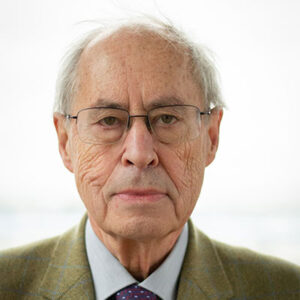The “Political Economy” scientific programme brings together research that shares a conception of economics as a branch of the social sciences, both as a approach (theoretical and empirical) and as an object of study (in an epistemological and history-of-thought approach).
The scientific positioning of the Political Economy programme is based on a certain number of methodological principles :
- particular attention is paid to the institutional framework of economic actions and processes, spatially and historically contextualized; the temporal dimension (dynamics, mutations) and international comparison therefore play a central role in the analysis of the phenomena studied ;
- the discipline of economics cannot claim on its own to exhaust the intelligibility of reality, including so-called economic phenomena; many works therefore integrate a pluri- or interdisciplinary dimension (in particular with law, history, political science and sociology);
- the discipline of economics is not monolithic; there coexist several paradigms, whose history and interactions can be studied, but which can also be mobilized, in a concurrent or complementary manner, to study reality.
The scientific programme is backed by two Master’s degrees :
- “Economic and Social Administration” (Institut d’Administration Economique et Sociale, Sorbonne Law School).
- “Economic and Social Sciences” (Sorbonne School of Economics).
Within these two specializations, two research courses are managed or co-managed by members of the scientific program.
The attendance restricted to the members of the scientific program.
- “Cognitive Capitalism” Organizers: Jean-Marie Monnier (University Paris 1) and Carlo Vercelone (Université Paris 8) Frequency : Once a month
This seminar is dedicated to “Cognitive Capitalism” – i.e. the new form of capitalism based on the accumulation of ‘immaterial capital’, the dissemination of knowledge and the driving role of the knowledge economy. In the cognitive capitalism, knowledge, science and technology become leading productive forces, and cooperation within networks becomes crucial.
- “Economic Epistemology Circle” (Cercle d’Épistémologie Économique) Organizers: Annie L. Cot et Jérôme Lallement. Frequency: twice a month
Since 1988, this seminar is dedicated to theoretical, philosophical and epistemological foundations of the recent economic thought.
- Albert O. Hirschman Seminar Organizers: Annie L. Cot et Jérôme Lallement. Frequency: twice a month
Seminar for the PhD students of the scientific program in epistemology and history of the recent economic thought. PhD students may also come from university of Lille, Nice, Lyon (ENS) et Lausanne.
This seminar is dedicated to heterodox economics. It is organized jointly with other research centers: CEPN (University Paris-Nord), EconomiX (University of Nanterre), IRISSO (University Paris-Dauphine), LADYSS (University of Paris Nanterre), LED (University Paris 8), and PHARE (University Paris 1).
This seminar is organized jointly by the CES (“Political Economy” and “Behavioral Sciences” scientific programs) and the Paris School of Economics. The invited speakers are usually from another institution and have an international reputation. They present their most recent works in the field of political economy, most often with a focus on institutional changes. Each presentation is followed by a discussion conducted by a researcher affiliated to PSE or CES.
Contact: Monique-Alice Tixeront – monique-alice.tixeront psemail.eu (please contact Monique-Alice Tixeront if you wish to register to the EPCI mailing list)
All these seminars have the support of the University Paris 1 Panthéon-Sorbonne.





























